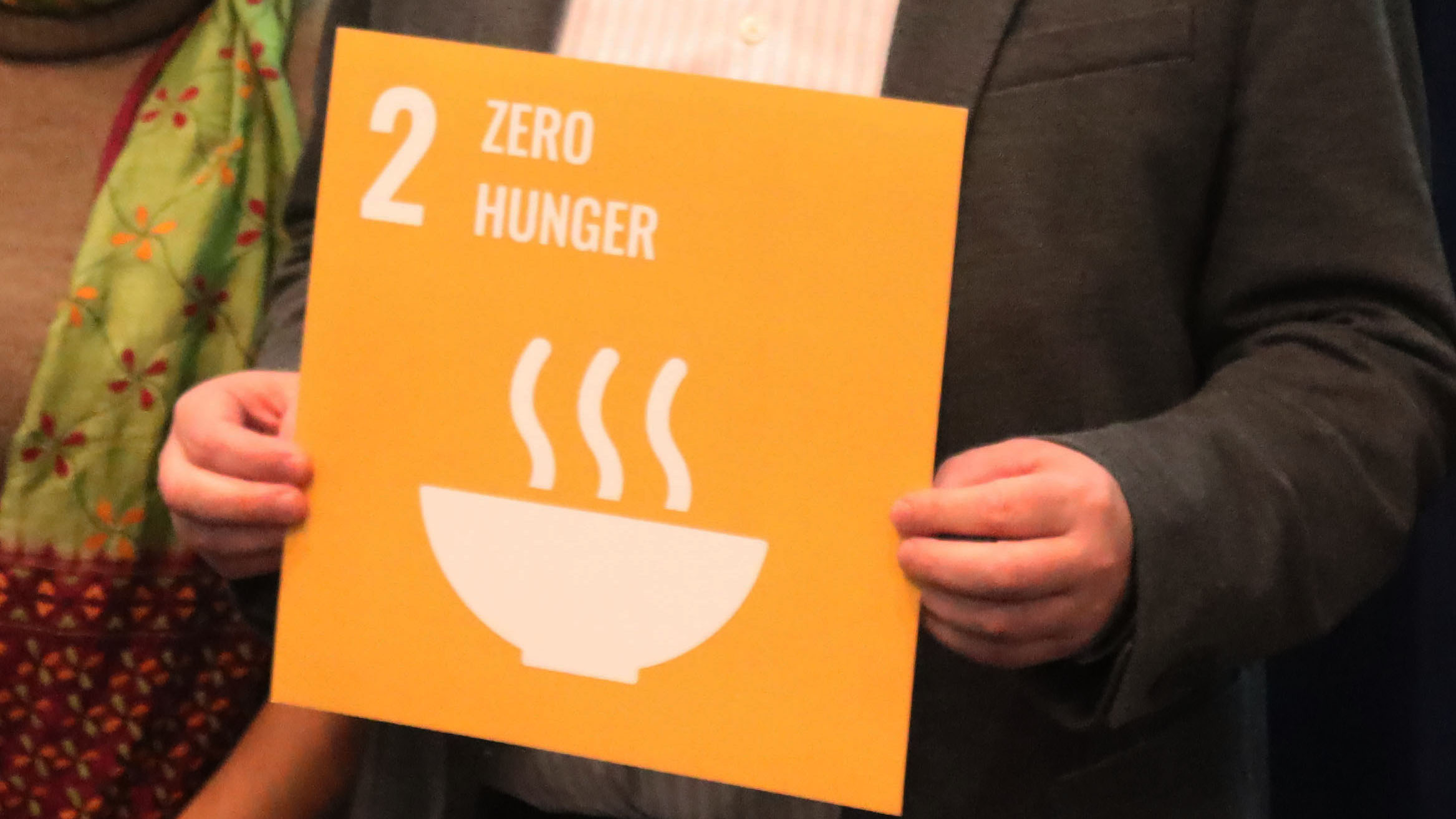‘People must forage’: Food insecurity among Nova Scotia’s infants at all-time high
Researcher reveals more than one-third of Nova Scotia's children to be food insecure

caption
Acadia University has chosen zero hunger as its Sustainable Development Goal for 2023, as part of its commitment to the UN's framework.A troubling warning about infant food insecurity in Nova Scotia emerged from a research panel held at Acadia University on Monday.
Lesley Frank, Acadia professor and Canada research chair in food, health and social justice, revealed that in 2022, more than one-third of children in Nova Scotia lived in food insecure households, the highest numbers since data collection began on child food insecurity.
“I was put up here first because nothing I say is anything but depressing,” said Frank.
The panel, hosted by Acadia University president Jeff Hennessy, featured talks from three food researchers working to achieve zero hunger by 2030 in line with the United Nations’ Sustainable Development Goals (SDGs).
All three Acadia researchers agreed that the province, instead of moving toward a future of zero hunger, has been rapidly moving away from that target in 2023.
“Food affordability challenges and recent supply chain shocks are moving us further away from the 2030 target for our youngest people, and we need renewed commitment to the goal,” says Frank.
Breastfeeding mothers in Nova Scotia are struggling to feed their infants because they are food insecure themselves and either cannot afford or cannot procure formula given a supply shortage caused by the 2022 shutdown of Abbott Nutrition’s formula factory.
“In Canada, we have no non-commercial pathways for formula access. People must forage,” says Frank. “We shouldn’t be surprised that infant formula is the top shoplifted item, now currently kept locked up in retail spaces.”
“Foraging happens in second-hand exchange sites online, where formula is sold, traded, sought and gifted. Mothers are helping mothers,” Frank said.
Anecdotal evidence from Frank’s research show that mothers acquire formula from churches, food banks, acquaintances, family resource centres and even public health.
A 2022 pilot survey of 1,400 Nova Scotian families with young children, conducted by Frank’s Fed Family Lab, of which 31 per cent lived in food insecure households, found that 47 per cent needed to borrow money to feed their child and 4 per cent admitted to stealing formula from the grocery store.
Community food researcher Chaiti Seth went further to define who is hungry, emphasizing that Black households are over three times more likely to be food insecure, with 36.6 per cent of Black children across Canada experiencing food insecurity.
When asked by attendees how federal and provincial governments could alleviate infant food insecurity, two panellists doubted conventional government methods could solve the issue.
“I don’t see a way for it to be achieved without a paradigm shift,” said Seth, calling for smaller producers to be supported locally, which would make Nova Scotians less dependent on long food supply chains.
Frank outlined solutions that she regularly presents to the provincial government: improving access to milk banks, a better supply chain for affordable infant formula, and a policy-protected right to breastfeed.
Her political consultations have yielded little policy change, she said.
She said the province has no poverty reduction plan. The greatest reduction in child poverty was by 24.3 per cent in 2020, attributable to the federal pandemic benefits. The province can be held accountable for only one per cent of that work, she said.
Numbers of food insecure infants are anticipated to rise in 2023 due to the effects of inflation, though blame is often cast on mothers themselves.
“Women get blamed for it, especially if you’re formula feeding,” says Frank. “They say, ‘you wouldn’t have this problem if you had only breastfed’. There’s no consideration for the labour required to do that feeding work or the fact that mothers need to be fed themselves.”
About the author
Jacqueline Newsome
Jacqueline is a proud King's Master's student from Toronto who loves to write about matters of public safety.
